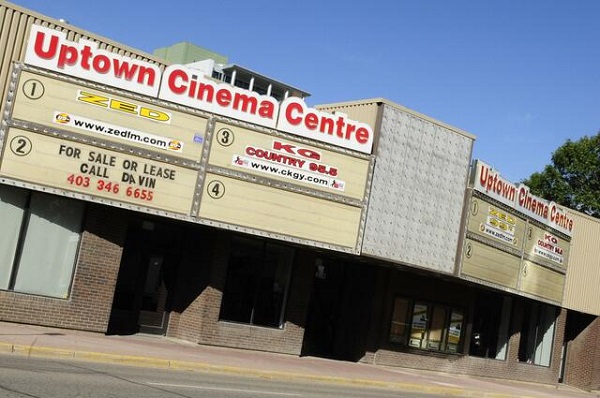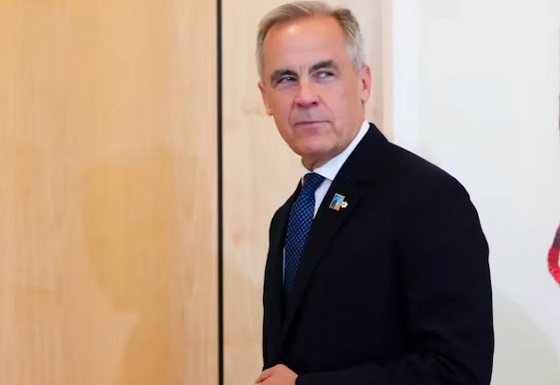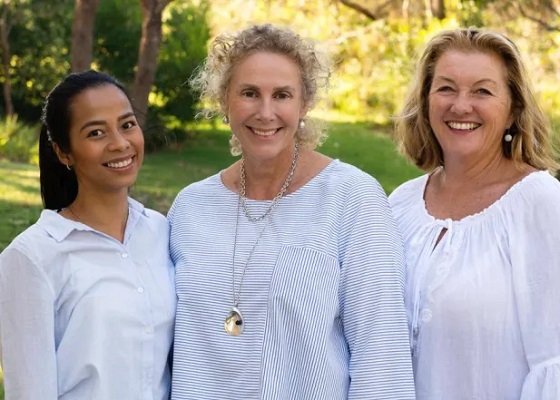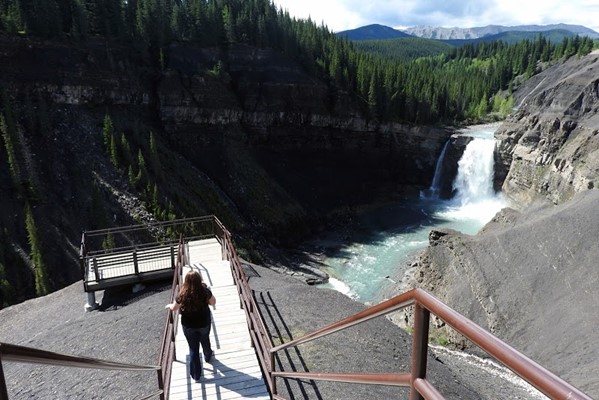2025 Federal Election
Fixing Canada’s immigration system should be next government’s top priority

From the Fraser Institute
Whichever party forms government after the April 28 election must put Canada’s broken immigration system at the top of the to-do list.
This country has one of the world’s lowest fertility rates. Were it not for immigration, our population would soon start to decline, just as it’s declining in dozens of other low-fertility countries around the world.
To avoid the social and economic tensions of an aging and declining population, the federal government should re-establish an immigration system that combines a high intake with strictly enforced regulations. Once Canadians see that program in place and working, public support for immigration should return.
Canada’s total fertility rate (the number of children, on average, a woman will have in her lifetime) has been declining, with the odd blip here and there, since the 1960s. In 1972, it fell below the replacement rate of 2.1.
According to Statistics Canada, the country’s fertility rate fell to a record low of 1.26 in 2023. That puts us in the company of other lowest-low fertility countries such as Italy (1.21), Japan (1.26) and South Korea (0.82).
Those three countries are all losing population. But Canada’s population continues to grow, with immigrants replacing the babies who aren’t born. The problem is that, in the years that followed the COVID-19 lockdowns, the population grew too much.
The Liberal government was unhappy that the pandemic had forced Canada to restrict immigration and concerned about post-pandemic labour shortages. To compensate, Ottawa set a target of 500,000 new permanent residents for 2025, double the already-high intake of about 250,000 a year that had served as a benchmark for the Conservative government of Stephen Harper and the Liberal governments of Paul Martin and Jean Chrétien.
Ottawa also loosened restrictions on temporary foreign worker permits and the admission of foreign students to colleges and universities. Both populations quickly exploded.
Employers preferred hiring workers from overseas rather than paying higher wages for native-born workers. Community colleges swelled their ranks with international students who were also issued work permits. Private colleges—Immigration Minister Marc Miller called them “puppy mills”—sprang up that offered no real education at all.
At the same time, the number of asylum claimants in Canada skyrocketed due to troubles overseas and relaxed entry procedures, reaching a total of 457,285 in 2024.
On January 1 of this year, Statistics Canada estimated that there were more than three million temporary residents in the country, pushing Canada’s population up above 41.5 million.
Their presence worsened housing shortages, suppressed wages and increased unemployment among younger workers. The public became alarmed at the huge influx of foreign residents.
For the first time in a quarter century, according to an Environics poll, a majority of Canadians believed there were too many immigrants coming into Canada.
Some may argue that the solution to Canada’s demographic challenges lie in adopting family-friendly policies that encourage couples to have children. But while governments improve parental supports and filter policies through a family-friendly lens—for example, houses with backyards are more family-friendly than high-rise towers—no government has been able to reverse declining fertility back up to the replacement rate of 2.1.
The steps to repairing Canada’s immigration mess lie in returning to first principles.
According to Statistics Canada, there were about 300,000 international students at postsecondary institutions when the Liberals came to power in 2015. Let’s return to those levels.
The temporary foreign worker program should be toughened up. The government recently implemented stricter Labour Market Impact Assessments, but even stricter rules may be needed to ensure that foreign workers are only brought in when local labour markets cannot meet employer needs, while paying workers a living wage.
New legislation should ensure that only asylum claimants who can demonstrate they are at risk of persecution or other harm in their home country are given refuge in Canada, and that the process for assessing claims is fair, swift and final. If necessary, the government should consider employing the Constitution’s notwithstanding clause to protect such legislation from court challenges.
Finally, the government should admit fewer permanent residents under the family reunification stream and more from the economic stream. And the total admitted should be kept to around 1 per cent of the total population. That would still permit an extremely robust intake of about 450,000 new Canadians each year.
Restoring public confidence in Canada’s immigration system will take much longer than it took to undermine that confidence. But there can be no higher priority for the federal government. The country’s demographic future is at stake.
2025 Federal Election
NDP’s collapse rightly cost them official party status

This article supplied by Troy Media.
 By Michael Taube
By Michael Taube
Official party status requires 12 seats. The NDP got seven. End of story
Rules are rules.
That, in a nutshell, is why the NDP wasn’t granted official party status in the House of Commons on Monday. Prime Minister Mark Carney and the
Liberals, to their credit, made the right decision.
Let’s examine why.
The 1963 Senate and House of Commons Act passed an amendment that gave an annual allowance to party leaders other than the prime minister and
leader of the Opposition. In doing so, the Canadian government had to establish what constitutes a “political party.” The definition they came up with was a sensible one: it had to have a “recognized membership of 12 or more persons in the House of Commons.”
This important amendment is still used today.
The NDP fell from 24 to a paltry seven seats in last month’s federal election. (There are a total of 343 seats in the House of Commons.) They finished with 1,234,673 votes, or 6.29 per cent, which was behind the Liberals, Conservatives and Bloc Québécois. Party leader Jagmeet Singh, who had represented the former Burnaby South riding since 2019, finished a distant third in the newly created Burnaby Central riding and resigned.
The NDP’s seven seats is well below the 12-seat requirement needed for official party status. This means Canada’s socialist alternative won’t be able to ask questions in the House of Commons and will lose out on money for research purposes.
Or, to put it another way, they’re plumb out of luck.
Hold on, some people said. They pointed out that the NDP’s seat count and popular vote only plummeted because many progressive voters backed Carney and the Liberals as the best option to counter U.S. President Donald Trump and his tariffs. They felt that the NDP’s long history as a champion for unions and the working class should count for something. They suggested there should be an exception to the rule.
Guess what? They’re wrong.
This is the worst election result in the party’s history. Even its predecessor, the Co-operative Commonwealth Federation (CCF), did marginally better in its first campaign. The CCF won seven out of 245 seats—and earned 410,125 votes, or 9.31 per cent—in the 1935 election. Party leader J.S. Woodsworth, who had represented the riding of Winnipeg North Centre as an Independent Labour MP since 1925, comfortably held his seat.
Meanwhile, this won’t be the first time they’ve ever lost official party status.
The NDP dropped from 43 to nine seats in the 1993 election. It was a dismal showing, to say the least. There was a suggestion at the time that then-party leader Audrey McLaughlin, the first woman to lead a party with political representation in Canada’s House of Commons, deserved a better fate. While the NDP certainly came closer to achieving the 12-seat requirement in this particular election, Prime Minister Jean Chrétien and the Liberals decided against granting them official party status.
Why? As I mentioned earlier, rules are rules.
Then again, British pilot Harry Day notably told his fellow flying ace Douglas Bader in 1931, “You know my views about some regulations—they’re written for the obedience of fools and the guidance of wise men.”
Does this mean that individuals and organizations who follow rules are, in fact, fools? Not at all. While certain rules in a liberal democratic society can range from slightly questionable to utterly ridiculous, they’re usually put in place for a specific purpose.
In the case of the House of Commons, it’s to ensure that a bar has been set with respect to political representation. Is 12 seats the right number? That’s difficult to say. It certainly prevents small protest parties and one-issue parties that unexpectedly win a tiny number of seats in an election from acquiring power and status right off the bat. They need to win more seats and grow in size and stature to reach a point of respectability. Most of them never reach this point and disappear while others float in a constant state of mediocrity like the Green Party of Canada. ’Tis the nature of the political beast.
One final point. If Singh and the NDP had reached double digits in total number of seats in 2025, a solid case could have been made in favour of official party status. If they had finished with 11 seats, it would have almost been a lock. Neither scenario ultimately materialized, which is why Carney and the Liberals did exactly what they did.
Michael Taube is a political commentator, Troy Media syndicated columnist and former speechwriter for Prime Minister Stephen Harper. He holds a master’s degree in comparative politics from the London School of Economics, lending academic rigour to his political insights.
Troy Media empowers Canadian community news outlets by providing independent, insightful analysis and commentary. Our mission is to support local media in helping Canadians stay informed and engaged by delivering reliable content that strengthens community connections and deepens understanding across the country.
2025 Federal Election
Judicial recounts give Conservatives 2 more seats, keeping Liberals short of majority

From LifeSiteNews
After a judicial recount, Conservative candidate Kathy Borrelli has officially won over Liberal incumbent Irek Kusmierczyk, in the Ontario riding of Windsor-Tecumseh-Lakeshore.
Judicial recounts from the 2025 federal election have given the Conservative Party two new seats, with one candidate winning by just four votes.
After a judicial recount, Conservative candidate Kathy Borrelli has officially won over Liberal incumbent Irek Kusmierczyk, in the Ontario riding of Windsor-Tecumseh-Lakeshore.
Borrelli got 32,090 votes, with Kusmierczyk getting 32,086 votes, and NDP candidate Alex Ilijoski getting 4,240 votes.
In the Newfoundland riding of Terra Nova-The Peninsulas, Conservative candidate Jonathan Rowe beat out Liberal Anthony Germain by just 12 votes after a recount with the initial result showing a Liberal victory.
The new election results mean the Conservatives now have 144 seats with the Liberals at 169, three short of a majority.
Judicial recounts are automatically triggered when the margin of victory for a candidate is less than 0.1 percent of valid votes.
While these recounts have favored the Conservatives, others have gone in the Liberal Party’s favor.
A May 16 judicial recount switched the southern Ontario riding of Milton East-Halton Hills South to the Liberals with a 21-vote victory over the Conservatives.
Overall, the election results have been a big blow to the Conservative Party, which on top of losing the election also saw its leader, Pierre Poilievre, fail to win his long-held seat. However, Poilievre is expected to run in a yet-to-be-announced by-election in Alberta to reclaim a seat in Parliament.
-

 MAiD2 days ago
MAiD2 days agoCanada’s euthanasia regime is not health care, but a death machine for the unwanted
-

 Alberta2 days ago
Alberta2 days agoAlberta’s government is investing $5 million to help launch the world’s first direct air capture centre at Innisfail
-

 Business2 days ago
Business2 days agoOttawa Funded the China Ferry Deal—Then Pretended to Oppose It
-

 armed forces2 days ago
armed forces2 days agoIt’s not enough to just make military commitments—we must also execute them
-

 Business2 days ago
Business2 days agoCarnival Cinemas moving downtown: Owner Bill Ramji buys former Uptown Cinemas from RDP
-

 Business1 day ago
Business1 day agoBehind the latest CPI Numbers: Inflation Slows, But Living Costs Don’t
-

 Business2 days ago
Business2 days agoMunicipal government per-person spending in Canada hit near record levels
-

 armed forces2 days ago
armed forces2 days agoMark Carney Thinks He’s Cinderella At The Ball






